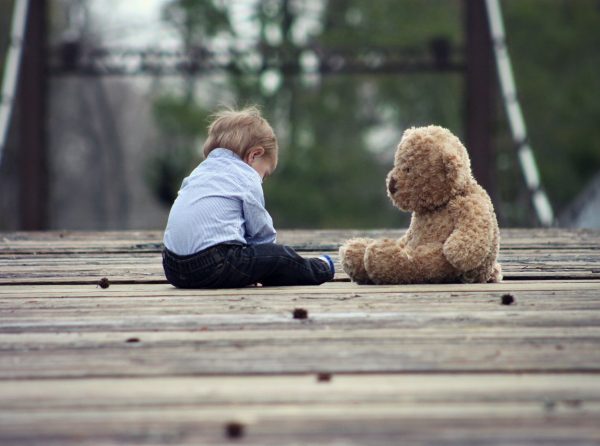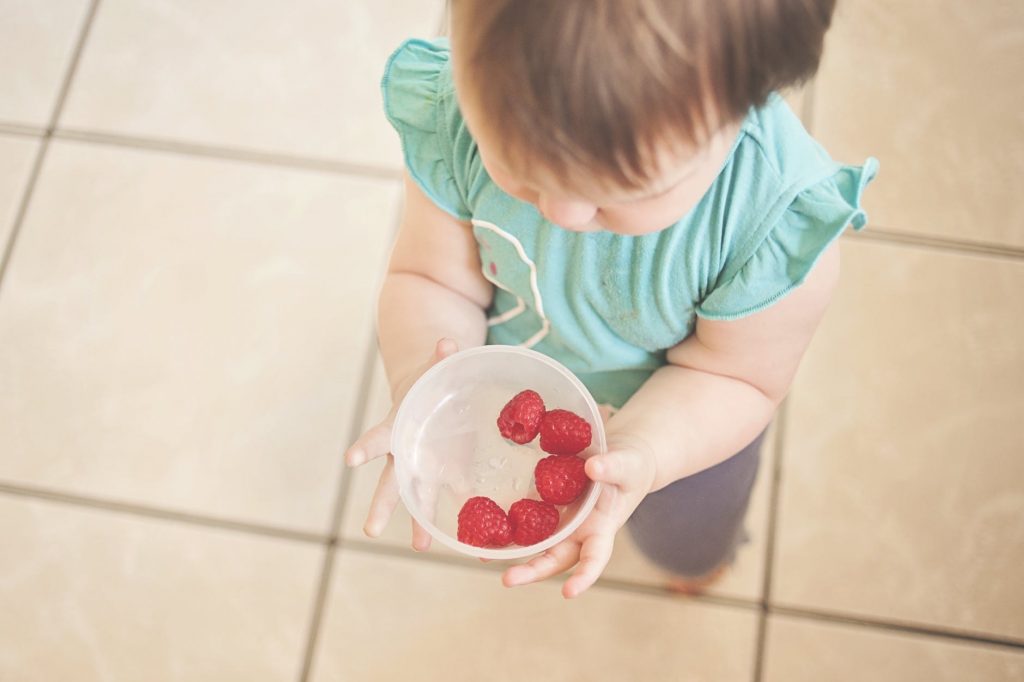Living with young children can sometimes feel like you’re walking delicately across a tantrum minefield. One wrong step and there’s crying and screaming, falling down, kicking, biting, hitting, or throwing things. Something that didn’t set them off one day, may set them off on another, and this can go on for months and yes, it is as exhausting as it sounds.
Tantrums are extremely common in toddlers and preschoolers. It doesn’t mean that your child is badly misbehaved, this is just how young children deal with difficult feelings and emotions that they don’t understand yet. It’s essential in your role as a parent that you help them through this stage so that you can mould a healthy way to process emotion for them in the future.
Finding your child’s tantrums draining and stressful? To help you breeze through them so that you can end your days with that satisfying cup of tea, here are our top secrets to handling toddler tantrums like a pro.
Don’t lose your cool
If you get angry or frustrated with your child and you end up shouting or threatening punishment, you will find that they will respond negatively and often worse than before. Children are often just frightened of this emotion they are feeling, so don’t leave them alone, sit with them while they get through it.

Be calm and positive
By staying calm, your calming effect will eventually help your child to calm down too. If they are not flailing too much, a comforting embrace or stroking their hair and telling them “I know”, “it’s okay” should work too as it makes them feel safe and understood.
Remember that you’re the adult
It can be so easy to respond to a tantrum with anger, but just take a breath and remind yourself that you’re the adult and that this is a teaching moment. No matter how long it goes on for, don’t cave in or try to pacify them with reward, they need to know that you’re in control as they feel scared.
Stay calm and don’t worry what others think if you are in public, all parents understand. If it doesn’t look like it’s going to stop any time soon, take them to their bedroom or outside of the restaurant and explain why they are there and that they will stay there until they calm down.
Don’t reason or reward
Your toddler is so overwhelmed with emotion that they are unable to think or verbalise their feelings, so don’t try and reason with them about their behaviour straight away. Save that for later when their emotional brain isn’t in control. Don’t accidentally reward tantrums either. Rewards can be shouting or pleading (as your child is getting attention) or caving into something that you previously said no to.

But don’t punish either (Use time-outs as a last resort!)
Although tantrums may sometimes start as a means to get something that they want, often they tend to escalate into a strong hormonal storm that scares your child as they are not equipped to cope with it themselves. It is in these moments where punishing them will have a very damaging effect.
Yes, tantrums are a behaviour that we as parents want to discourage, but by punishing them with a time-out or isolation, this can make your child feel very alone and it teaches them that they can’t trust you to help them when they feel this way as you don’t understand their pain. This can have very negative effects on your child as they grow, especially when it comes to being able to handle stress, self-soothe, or being assertive.
Time-outs can be used, but should only be used when your child has hurt someone intentionally or is not flooded with emotion. It is in these moments where you can place your child in a designated spot, explain to them that what they did was wrong and that they need to think about what they did, and you can go about your business for a few minutes to let them self-soothe. When you come back to them to lift the time-out, get them to explain to you why they were there and how they are going to change their behaviour.
Always talk it over afterwards
While your toddler is in the midst of a tantrum, it’s a waste of time reasoning. When the storm has subsided, however, now is the time to hold your child close and talk about what happened. It’s essential that they process their emotion and try to understand it, so discuss it in very simple terms with them.

Something as simple as “I’m sorry I didn’t understand you. Now that you’re not screaming, I can find out what you want or what was wrong” and “okay, so you were angry because your food wasn’t the way you wanted it?” can make your child feel like they are acknowledged and will help them be able to communicate verbally in the future.
Let your child know that you love them
Once your toddler is calm and you’ve discussed why the tantrum came to be, always end the episode with a hug and tell them that you love them. Not only are you rewarding good behaviour (your child calming down and talking to you) but you are also making them feel acknowledged, setting a healthy precedence for managing and communicating emotions as they grow.
Watch out for signs of stress
Most tantrums are because of over-stress, so pay attention to your little one. Use HALT to prevent potential outbursts. Are they:
H – Hungry?
A – Angry?
L – Lonely or bored?
T – Tired?

If you set a good sleep-eat-rest schedule, many tantrums can be avoided, but it’s always handy just to observe them every now and then as you may be able to predict a potential one coming.
It is also essential to bear in mind any external stresses on your child. If you’re having a particularly busy week, there are parental or family tensions or an upheaval in the family, all of these can make your child feel emotional and provoke tantrums.
Try to avoid tantrum-inducing situations
You’ll get to know your child and what seem to push their buttons, so in time, you’ll be able to predict a tantrum coming and plan accordingly to avoid it. If you know that your child will get upset when they won’t be getting something that they want, provide alternative or distractions in advance. If you know your child is more likely to explode when they are hungry or tired, always bring snacks with you and schedule errands after nap time.
You can avoid many tantrums this way, but when there is one definitely brewing, questions and distractions are always best. If your child is a pain when it comes to eating, instead of shouting “eat your carrots!” and making them feel like their in control, ask them “what are you going to eat first?” This surprising change of tone distracts them from their feelings and stimulates their logical thinking, putting out that fire before it even began.

Other great tactics include telling your child what is going to happen to give them time to adjust, such as “we’re going to eat once we’ve cleaned up your toys” or “we are going to leave the park soon to go home,” or even just doing something that they didn’t expect, such as making a silly face, giving them a random toy, or pointing out something for them to look at.
Teach them new vocabulary
I’m sure you’ve all heard “use your words” when it comes to toddler tantrums and it’s a good piece of advice. When you’re talking through the tantrum after everything has settled, teach your child what they need to say next time that they feel this way.
You can also explain to them how their tantrums make you feel, as not only will this expand their vocabulary and help them communicate ensuring fewer tantrums for you in the future, but it also helps them learn how their actions affect others and what empathy is.
Reward in the right way
Always positively promote good behaviour in the ways that we’ve suggested above and you’ll soon find that this technique will begin to reduce the number of tantrums that occur. We always say not to give inappropriate behaviour your attention as this is a reward for your toddler, so ignore the behaviour by not showing emotion and waiting for them to calm down. Once they are calm, you can then reward them in ways that will reinforce the being calm behaviour, teaching them that tantrums won’t bring attention so they are not the way to communicate.

Consistency is key!
Tantrums are going to happen and they are going to get you down, just remember that it is just a phase and that you can teach your child healthy habits. It will take time and a lot of trial and error, but once you’ve found the best way to manage your toddler’s outbursts, stick with it and you’ll soon see positive results!
** If your child’s tantrums seem overly frequent or intense (or they keep hurting themselves or others), seek help. Your doctor will discuss your child’s developmental and behavioural milestones with you at routine well-child checkups **
At Schoolhouse Daycare, we enjoy learning, encouraging confidence and we love life! If you think your child would enjoy life at Schoolhouse, then please do not hesitate to arrange a visit.

